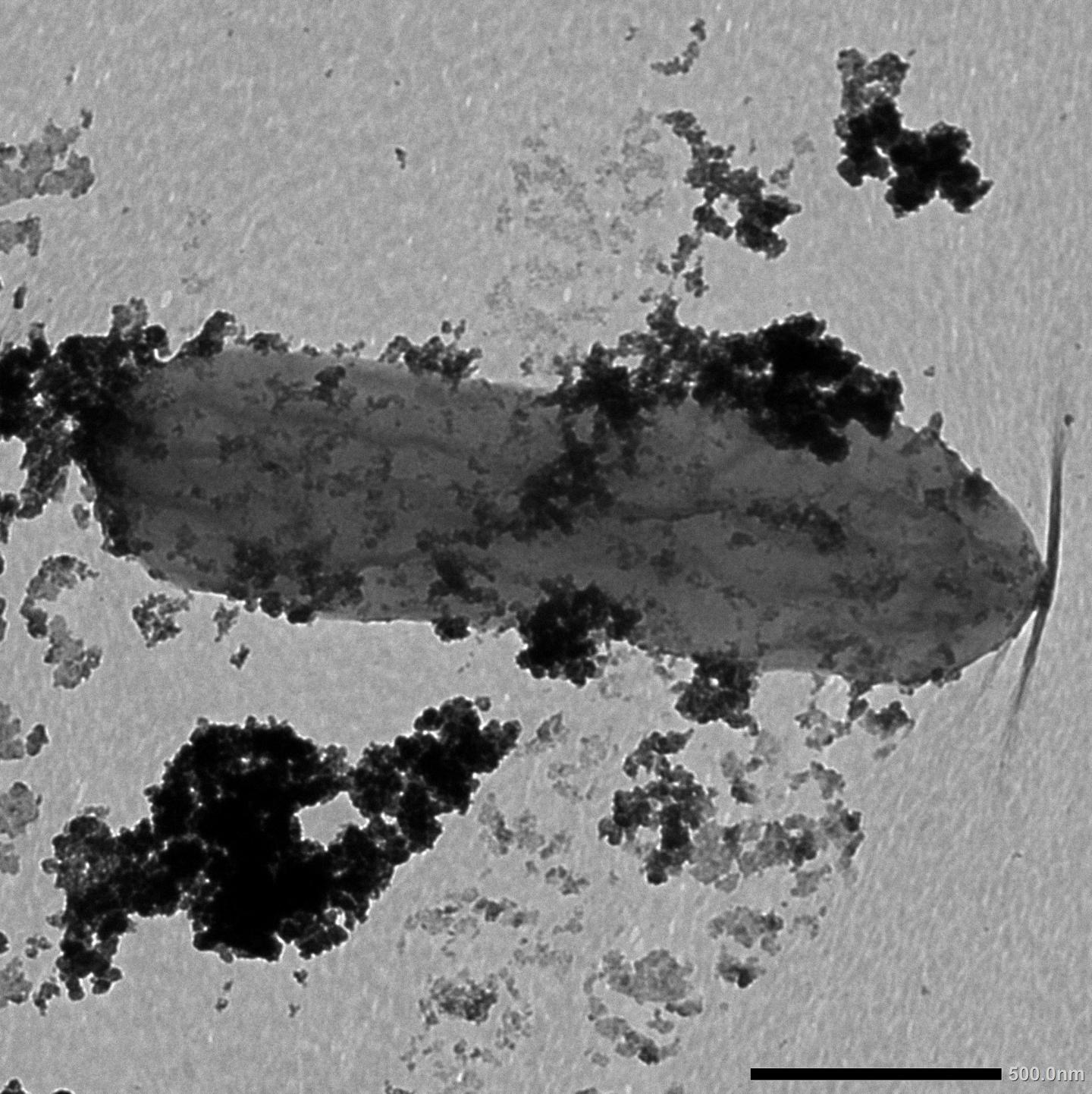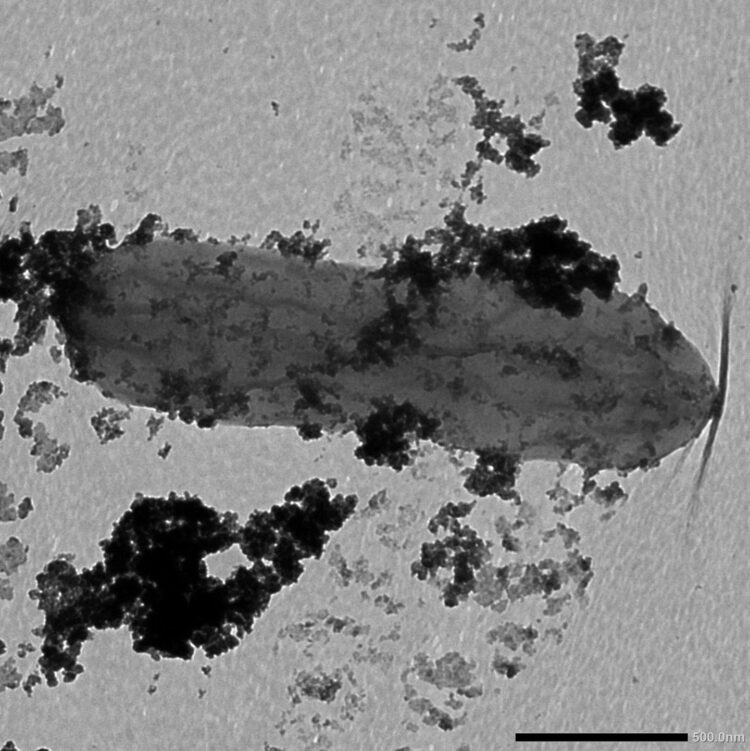MSU researchers show how microbes stand up to a toxic metal, opening the door for applications in recycling and remediation

Credit: Hunter Dulay, MSU
When Michigan State University’s Gemma Reguera first proposed her new research project to the National Science Foundation, one grant reviewer responded that the idea was not “environmentally relevant.”
As other reviewers and the program manager didn’t share this sentiment, NSF funded the proposal. And, now, Reguera’s team has shown that microbes are capable of an incredible feat that could help reclaim a valuable natural resource and soak up toxic pollutants.
“The lesson is that we really need to think outside the box, especially in biology. We just know the tip of the iceberg. Microbes have been on earth for billions of years, and to think that they can’t do something precludes us from so many ideas and applications,” said Reguera, a professor in the Department of Microbiology and Molecular Genetics.
Reguera’s team works with bacteria found in soil and sediment known as Geobacter. In its latest project, the team investigated what happened to the bacteria when they encounter cobalt.
Cobalt is a valuable but increasingly scarce metal used in batteries for electric vehicles and alloys for spacecraft. It’s also highly toxic to livings things, including humans and bacteria.
“It kills a lot of microbes,” Reguera said. “Cobalt penetrates their cells and wreaks havoc.”
But the team suspected Geobacter might be able to escape that fate. These microbes are a hardy bunch. They can block uranium contaminants from getting into groundwater, and they can power themselves by pulling energy from minerals containing iron oxide. “They respire rust,” Reguera said.
Scientists know little about how microbes interact with cobalt in the environment, but many researchers — including one grant reviewer — believed that the toxic metal would be too much for the microbes.
But Reguera’s team challenged that thinking and found Geobacter to be effective cobalt “miners,” extracting the metal from rust without letting it penetrate their cells and kill them. Rather, the bacteria essentially coat themselves with the metal.
“They form cobalt nanoparticles on their surface. They metallize themselves and it’s like a shield that protects them,” Reguera said. “It’s like Iron Man when he puts on the suit.”
The team published its discovery in the journal Frontiers in Microbiology, with the research article first appearing online in late November, 2020. The Spartan team included Kazem Kashefi, an assistant professor in the Department of Microbiology and Molecular Genetics, and graduate students Hunter Dulay and Marcela Tabares, who are “two amazing and relatively junior investigators,” Reguera said.
She sees this discovery as a proof-of-concept that opens the door to a number of exciting possibilities. For example, Geobacter could form the basis of new biotechnology built to reclaim and recycle cobalt from lithium-ion batteries, reducing the nation’s dependence on foreign cobalt mines.
It also invites researchers to study Geobacter as a means to soak up other toxic metals that were previously believed to be death sentences for the bacteria. Reguera is particularly interested in seeing if Geobacter could help clean up cadmium, a metal that’s found in industrial pollution that disproportionately affects America’s most disadvantaged communities.
“This is a reminder to be creative and not limited in the possibilities. Research is the freedom to explore, to search and search and search,” Reguera said. “We have textbook opinions about what microbes can and should do, but life is so diverse and colorful. There are other processes out there waiting to be discovered.”
###
This work was supported by the NSF’s Geobiology and Low-Temperature Geochemistry Program, as well as a Hatch project grant from the United States Department of Agriculture’s National Institute of Food and Agriculture.
(Note for media: Please include a link to the original paper in online coverage: https:/
Media Contact
Caroline Brooks
[email protected]
Original Source
https:/





